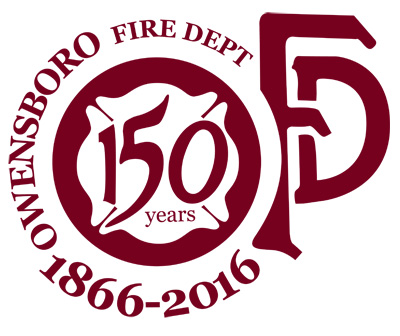

Open Burning and Recreational Fires
From City Ordinance Sec. 10-7. Bonfires, rubbish, etc., fires regulated.
- It shall be unlawful for any person to kindle or maintain any fire, bonfire or rubbish fire or authorize any such fire to be kindled or maintained on or in any public street, alley or road or other public ground without a permit from the chief of the fire department.
- It shall be unlawful for any person to kindle or maintain any open fire or authorize such fire to be kindled or maintained on any private land without first having obtained a permit from the Chief of the fire department. During construction or demolition of buildings or structures, no waste materials or rubbish shall be disposed of by burning on the premises or in the immediate vicinity. The burning of garbage or refuse that smolders or gives off noxious odors is prohibited.
- The chief may issue a permit pursuant to this section, which will not be unreasonably denied, upon a showing that the proposed fire will not endanger the public health and safety and is in compliance with adopted Fire Code(s).
- A Recreational Fire shall be defined as the noncommercial burning of materials for pleasure, religious, ceremonial, cooking, or similar purposes in which the total fuel area is not exceeding 3 feet in diameter and 2 feet in height. Materials should be of seasoned wood and may not include rubbish, leaves, grass or other substance that will give off substantial smoke or obnoxious odors. Recreational fires are to be permitted at one and two-family dwellings that are contained in an approved outdoor fireplace, permanent barbecue, or patio type fire pit with screen or door. Such shall not be used for the disposal of rubbish, trash or other combustible waste material. A recreational fire shall be constantly attended by a competent person with a garden hose or other fire extinguishing equipment readily available for use until such fire has been extinguished. The Fire Chief or designee may order a recreational fire be extinguished if such does not conform to proper regulations or such that the fumes are obnoxious or the fire and/or smoke pose a health and/or safety hazard to the public.
Sec. 1-11. General penalty for violation of Code; separate offenses.
- Whenever in this Code, or in any ordinance of the city, any act or omission is prohibited or is made or declared to be unlawful or a misdemeanor, or whenever in this Code or any ordinance the doing of any act or the failure to do any act is declared to be unlawful or a misdemeanor, and no specific penalty is provided therefor, and state law does not provide otherwise, the violation of any such provision of this Code or any ordinance shall be a violation punishable by a fine of no less than twenty-five dollars ($25.00) and no more than five hundred dollars ($500.00). Unless specifically provided otherwise, or the context thereof so dictates, each day any violation of any provision of this Code or any ordinance shall continue shall constitute a separate offense.
- Notwithstanding the provisions of subsection (a), the penalty for a violation of the provisions of this Code shall not be less than that imposed by statute for the same offense.
Fireworks Safety
A study by the U.S. Consumer Product Safety Commission (CPSC) shows that over 200 people on average go to the emergency room every day with fireworks-related injuries in the month around the July 4th holiday. Fireworks are dangerous!
2023 Calls By Type
| Fires | 6.51% |
| Rescue/EMS | 66.72% |
| Hazardous Conditions | 3.7% |
| False Alarms | 13.43% |
| All Other | 9.47% |
Fire Facts
- Only 26 percent of families have actually developed and practiced a home fire escape plan.*
- Eighty percent of Americans don’t realize that home fires are the single most common disaster across the nation.*
- In 2006, a home fire was reported every 80 seconds, and someone dies from a home fire every 204 minutes.***
- Sprinklers and smoke alarms together cut your risk of dying in a home fire 82% in relation to having neither.**
- Children under five and adults over 65 are more than twice as likely to die in a home fire than the rest of the US population.**
- Cooking fires are the leading cause of home fires and home fire injuries. And, two out of three cooking fires start with the range or stove.***
Sources: American Red Cross,* U.S. Fire Administration,** and the National Fire Protection Association.***